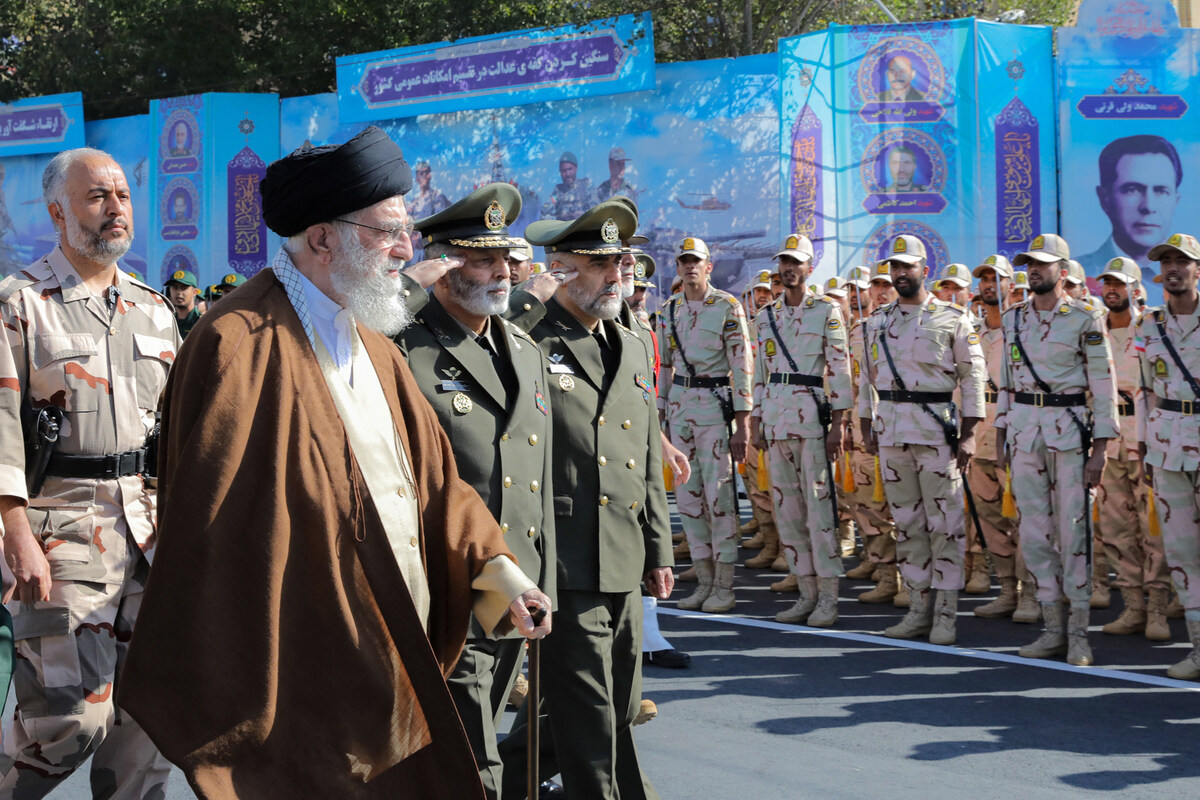
Overnight on Saturday local time, Iran launched more than 300 drones and missiles at Israel. It was in response to Israel’s April 1 attack that destroyed the Iranian consulate in Syria killing at least 7 senior Iranian military commanders.
The drones and missiles arrived hours later in Israeli airspace although, according to various media reports, many of them were shot down by planes from the United States and Great Britain in Jordanian airspace. The Army of Israel claimed that most were shot down and that no significant damage was detected, while Iran said its operation was “surgical.”hitting some military objectives that were used by Israel to attack its consulate in Damascus.
After this response, This is Iran’s first direct attack on Israel., the Islamic Republic ended the attack. And he asked Israel not to escalate it further.
▶️The #IRGC has just officially taken responsibility for attacks against #Israel.
Moments ago, the regime’s state TV aired a statement from the IRGC, stating that the group launched dozens of drones and missiles toward Israel in retaliation for the murder of seven IRGC… pic.twitter.com/IauK01U3Tb
— Navid Mohebbi (@navidmohebbi) April 13, 2024
Iran’s President Ebrahim Raisi said: “If the Zionist regime [Israel] or his supporters demonstrate reckless behavior, they will receive a decisive and much stronger response.”
After Israel’s attack on the consulate in Syria, the regime of the Islamic Republic was forced to give a response that is “forceful” enough so as not to appear weakened internally and externally, but at the same time with care not to escalate into an open regional war. Iran knew that most of its drones, thousands of them, would be intercepted before reaching Israel and most of the remaining ones shot down by the “iron dome” (the Israeli air defense system).
Additionally, Iranian Foreign Minister Hossein Amir-Abdollahian confirmed that They had informed the United States that the operation against Israel would be “limited” and in “self-defense” and that they did not seek to “expand the conflict in the region.” They had also notified their neighboring countries and the region 72 hours before.
As we explained in another article after the attack on its embassy in Syria, “The Islamic Republic thus faces a dilemma: it must respond, and probably with unprecedented intensity, but it cannot do so without offering Israel the opportunity to unleash an all-out war.” that would erase with a stroke the open differences between Netanyahu and Biden.”
In the midst of the attacks, the White House press reconfirmed the American alignment: “President Biden has been clear: our support for Israel’s security is strong. The United States will stand with the people of Israel and support their defense against these threats from Iran.
Democratic Representative Adam Smith, head of the congressional committee that oversees military affairs, spoke with CNN about the possibility that this could be a “measured” attack that allows Israel not to escalate and the Iranian regime to save face. A way to put pressure on Netanyahu since a counterattack can trigger a regional war, in a highly unstable area of the world.
In another analysis we said that there were two alternative hypotheses about Benjamin Netanyahu’s strategy behind the attack on the Iranian embassy. The first states that the objective is to trigger a war with Iran and, in this way, force the United States and the Western powers to align behind Israel. The other is that Israel attacked precisely because it sees that Iran is weak, that it is not in a position to go to war against Israel and that, therefore, it had to take advantage of that window of opportunity to hit the ayatollah regime and deter their allies of the “axis of resistance”.
For now there are no certainties about how the confrontation will continue. Netanyahu faces an enormous internal crisis in which his political survival, and perhaps even his freedom, depend on continuing the war-genocide in Gaza and keeping his far-right partners happy, who reject any solution that implies recognizing any status even if it is an apartheid regime for the Palestinian population.
For its part, the Iranian government needs to restore confidence in the regime’s largely delegitimized institutions, as demonstrated by the historically low turnout in the last elections, while reasserting its regional power.
For both, the prospect of uniting their country against an external threat It may be a way out in the short term, but totally uncertain in the medium and long term..
Source: www.laizquierdadiario.com

